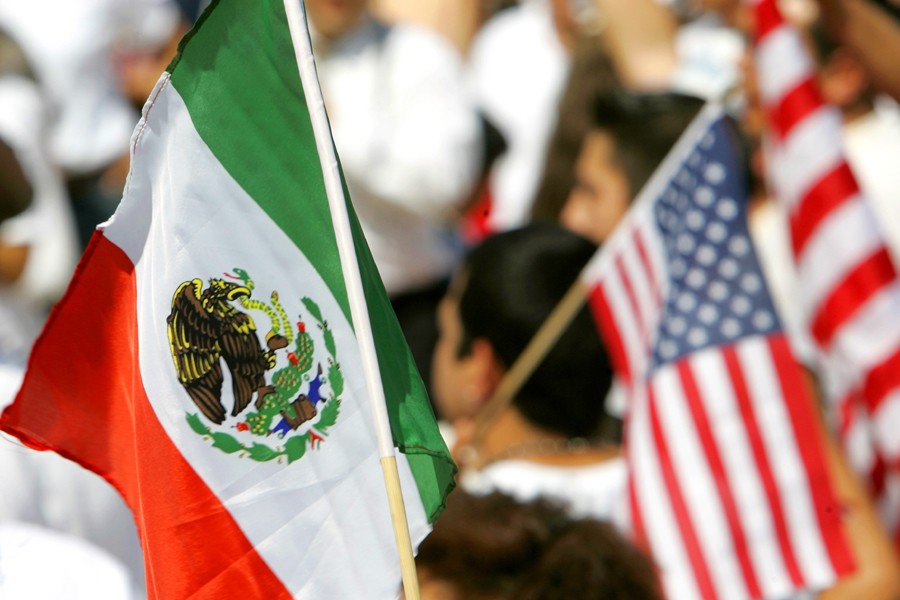WASHINGTON, June 06: Mexican and U.S. officials are set to resume talks in Washington on Thursday aimed at heading off punitive tariffs on Mexican goods as President Donald Trump called for Mexico to take more action to curb migration at the southern U.S. border.
The two sides met on Wednesday for discussions led by Vice President Mike Pence in an effort to strike a deal that would satisfy the U.S. president, who has called for the imposition of tariffs from Monday, reports Reuters.
Staff-level meetings are scheduled to begin at 2 p.m. (1800 GMT) with Mexican officials at the White House, a White House official said on background.
“They have to step up and they have to step up to the plate, and perhaps they will. We’re going to see if we can solve the problem,” Trump told reporters as he departed Ireland on Thursday to attend events marking the 75 anniversary of D-Day in France.
“We’re having a great talk with Mexico. We’ll see what happens, but something pretty dramatic could happen. We’ve told Mexico the tariffs go on, and I mean it too,” Trump said.
Pence told reporters the U.S. State Department would lead talks on Thursday, but gave no further details.
Mexican officials ramped up efforts to halt the flow of Central American migrants crossing the border to the United States, with Mexican soldiers, armed police and migration officials blocking migrants here along its own southern border with Guatemala.
It was unclear whether the hardening of Mexico’s response would appease Trump, who is struggling to make good on his key 2016 presidential campaign promise to build a wall along the U.S.-Mexico border as part of a hard-line immigration stance.
With efforts to get Mexico and then the U.S. Congress to fund the barrier having failed, Trump threatened to shut down the border completely, before backing off and turning to punitive tariffs.
Last week, Trump said Mexico must take a harder line on the flow of migrants across the border or face 5% tariffs here on all its exports to the United States from June 10, rising to as much as 25% later this year.
The unexpected announcement rattled global financial markets and even Trump’s fellow Republicans fretted about the potential economic impact on U.S. businesses and consumers who would have to absorb the costs.


